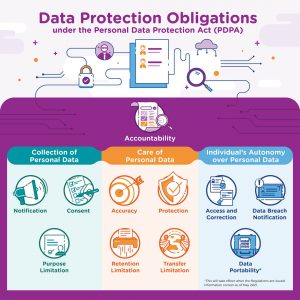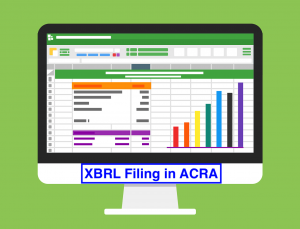As a Singaporean, you probably know that our country is famous for being business-friendly. Indeed, it�s possible to set up business in Singapore entirely online, without even having to step into the Accounting and Corporate Regulatory Authority (ACRA) office (assuming all goes well). Here�s how to do it as quickly and efficiently as possible:

- Get your SingPass ready
- Choose a valid company name
- Find a valid business address
- Decide on a company structure
- Register with Acra
- Open a bank account
- Appoint a corporate secretary
- Obtain any other relevant licenses / registration
1. Get your SingPass ready
You�ll be using your SingPass a lot for the following process; and you�ll also need it for future administration, such as updating your company details, change of address, etc.
If you no longer remember your SingPass password, you can reset it here.
2. Choose a valid company name
Your company name cannot be identical or too similar to an existing company. In addition, you cannot use terms restricted by the Ministry of Finance (e.g. you generally cannot use the word �bank� or �financial institution� in your company name, if you are not registered as such).
Vulgarities or objectionable phrases can also cause your business name to be rejected.
3. Find a valid business address
You will need to provide your business address during registration, so be sure to find a suitable office first. Note that you cannot use a Post Office (PO) Box number.
The registered office must be operational accessible to the public during office hours, but it is not necessary that your business activities be conducted there (e.g. you can have a registered business office in Changi Business Park, even if your main operations are in Jurong East).
If you are running a small-scale business (e.g. a sole proprietorship), you can use your residential address under the Home Office Scheme. This includes the possibility of using your HDB flat as a residential address. To do this, you must apply for permission from URA (for private properties) or HDB (for flat owners, or ECs that are not yet privatised).
To qualify for the Home Office Space, you need to meet the following requirements:
- You are at least 18 year old, and are either the owner or registered occupant / tenant of the property
- You have two or fewer non-residents working as employees from your house
- Your business activities remain small scale, and do not cause crowding or noise pollution (e.g. an education business that wants to tutor 20+ students at once probably won�t be approved).
Note that if you�re using an HDB flat, there are slightly higher fire safety requirements. You must keep a two-kilogram Dry Chemical Powder fire extinguisher in the house, and install a smoke detector in the office area.
Bear in mind that, if you use a Home Office (HO), your official business correspondence will give away your home address. This can result in certain problems later, such as more spam mail your letterbox – do consider carefully before setting up an HO.
4. Decide on a company structure
Is your business a sole-proprietorship, Limited Liability Partnership, or Private Limited company?
Each of these structures provide their own advantages. For example, Pte Ltd company is a separate legal entity from you; this can mean that you�re not always liable for the company�s debts. However, this has more extensive requirements later, such as having to hold Annual General Meetings (AGMs).
For more details on the various company structures, contact us for help. We can work out which type of company best suits your business.
5. Register with ACRA
All business entities operating in Singapore are required to register with the Accounting and Corporate Regulatory Authority (ACRA). Before you attempt to register, make sure you fulfill the basic requirements. For a Private Limited company, these are:
- At least one resident director has been appointed
- The local registered address is ready
- You have at least one shareholder (maximum of 50)
- You have the initial paid-up capital ready (minimum of $1; but EntrePass seekers should note that the minimum is $50,000 when attempting to obtain the EntrePass)
Registration can be done online, via BizFile+. You can login using your SingPass.
Simply follow the steps on the screen to complete registration. Note that you will need to fill in the following fields, among others:
- A description of your business activities
- Particulars of shareholders (for relevant company structures)
- Particulars of directors
- Registered office hours (minimum of three hours per weekday)
If you�re having difficulty completing registration, drop us a note so we can help.
Assuming everything is in order, your business entity can be registered in as little as three days (you will receive an email with your business UEN number, as well as a downloadable business profile).
5. Open a bank account
Your business entity must be registered, before local banks will allow you to open a corporate account.
Be sure to compare between SME account types for the best advantages. Be aware that fee structures for services – such as forex – can differ significantly between banks.
As your corporate secretarial service, we can help you expedite this process, and identify the bank that best suits your needs.
6. Appoint a company secretary
You must appoint a company secretary within six months of registering your company. Failure to do so could see your entity struck off the list, and you will have to go through the process again.
We can take care of this step for you directly, just drop us a note. If you are choosing to handle this yourself, however, we suggest you begin searching for a company secretary before you even begin registration. This is to minimise the risk of having to go through the whole process again.
7. Obtain any other relevant licenses / registration
In Singapore, the three main forms of registration to bear in mind are:
- Import / Export licensing – you can apply for these from Singapore Customs
- GST registration – You must register for GST if your annual taxable revenue exceeds SGD$1 million per annum
- Registration with Central Provident Fund (CPF) for local employees.
If your business has any other licensing needs (e.g. hazardous materials handling, instructor licenses), ensure these are in order before you begin operations. Note that you cannot usually obtain licensing before you receive your business’s UEN number from ACRA.
As a corporate secretarial services provider, we can provide additional help in managing or acquiring various licenses.
Confused, or don�t have time for this?
We�re experienced providers of corporate secretarial services, and we�re licensed to act on your behalf in registering your business. You could be on your way with just a 15 minute chat with us, instead of struggling through the form-filling and delays.
Contact us today to get your business started.







